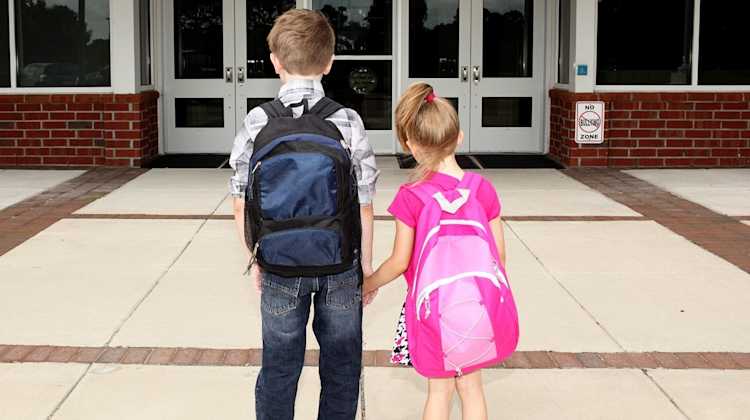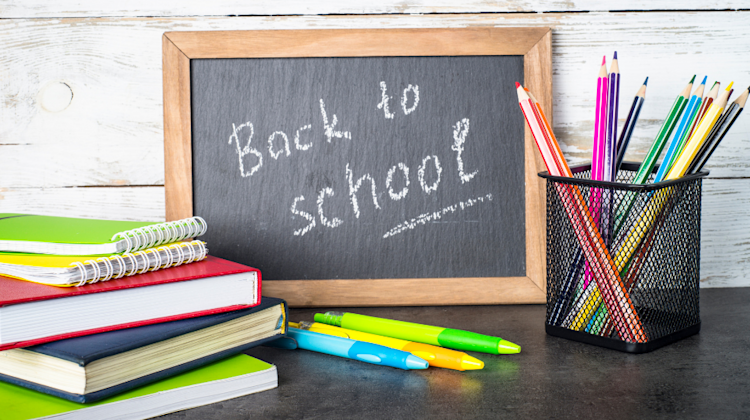5 School Tips for Parents of Military Kids
by Meg Flanagan - September 17th, 2022

At your last school, you were entirely in your groove. You had built a great relationship with the teachers. Your military kid was getting what was needed in the classroom. Everything was great. Except that now your family has PCSed and your military kids are starting over at a new school. No need to worry though because you can totally rock this school year with these school tips you can use ASAP.
1. Know your MIC3
The Military Interstate Children’s Compact Commission (MIC3) is the number one tool that military parents need to understand. This law is an agreement between all 50 states that helps ease your military kid’s transition between schools. MIC3 means that your child’s placement in school should move with you, whether you are headed to Rhode Island or Okinawa. The Compact will also help with those mid-school year moves when it comes to joining sports teams and extracurriculars. Every military parent should make sure that they read, understand, and know how to use MIC3.
2. Communicate with teachers often
Teachers can’t help if they don’t know what’s happening. And the only way your child’s teacher will know is if you tell them about your concerns. Keeping the lines of communication open and moving is a great way to build a supportive net around your military brat. Try to send a generally positive check-in email every other week or so. Highlight something that’s going right, share a success you’ve noticed, or give an update on a concern. Sending regularly, friendly-yet-professional emails is a great way to build a positive relationship with your child’s teacher.
3. Don't skip conferences
Even though your scheduled meeting might only be 10 or 15 minutes, it’s important to attend parent-teacher conferences. You’ll be able to get a snapshot of your child’s school day and overall achievement. Don’t be afraid to request your own meetings, too. If you have a question or concern that is bigger than email, ask your child’s teacher to meet with you. Meetings that you’ve scheduled outside of normal conferences are usually longer and can get more specific. You’ll get answers and get started on finding solutions.
4. Build a school file for each military kid
When you move to a new school, your child’s teacher can’t just walk down the hall to get info from past teachers. Help your military kid get off to a great start by storing all that info in a PCS binder! Include education plans, previous report cards, and assessment data. You might also want to slide in recommendation-style letters from coaches and teachers. When this year’s teacher has a question, it’s easy to grab your PCS binder and find the exact right document that provides insight.
Read more school tips in this article about going back to school in a new city.
5. Know your military kid
You are the expert on your child: their moods, likes, appearance, achievements, strengths, and weaknesses. School can be rough on kids even when they stay in one district from Kindergarten to Senior year. Adding in several moves can be even more challenging. Know your military kid and keep an eye out for any changes. A dip in grades or emotional change might indicate more significant issues at play.
Keep your child’s teacher in the loop about deployments or other significant life changes, too. Children often act, react, and present differently at school than at home. So a watchful teacher could help you spot trouble and head it off. If you do run into a tough spot, don’t be afraid to reach out for help. Your local School Liaison Officer can help direct you to resources in the military community. The counselor and teacher can share school-based options, too. For problems bigger than these free resources, don’t hesitate to explore private options, like tutors, education coaches, and advocates.
Pay it forward to other military families
Help your fellow military parents by leaving a base housing or neighborhood review at PCSgrades.com, a website where military and veteran families help each other with our biggest relocation needs through trusted reviews. You can leave important local school details in your housing or neighborhood review. Help us help each other. Together, we can truly make a difference!
Tell us about your child's school in a housing or neighborhood review.








